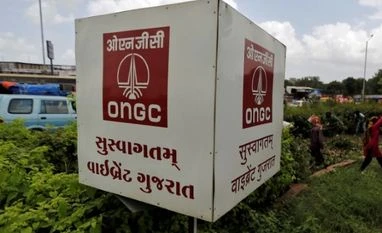The decision by government-run Oil and Natural Gas Corporation (ONGC) to buy stake in Gujarat State Petroleum Corporation’s (GSPC’s) Krishna-Godavari basin block has raised eyebrows, with some seeing it a bail-out for the latter entity.
Late last week, the latter’s board of directors had approved the plan to acquire 80 per cent participating interest of GSPC in KG-OSN-2001/3 for $995.26 million.
However, there are those who contend the sweetening of the deal would make it an exciting buy for ONGC. "The contract between the two public sector undertakings is good for the industry, as it would create a synergy. As far as ONGC is concerned, they have negotiated the prices well and it is much better placed to develop the resource than GSPC. More, ONGC will be able to use the vast infrastructure that GSPC has built, including the pipelines," said R S Sharma, chairman of business chamber Ficci’s hydrocarbon wing and a former chairman of ONGC.
The deal size was initially expected to be $2-2.5 billion. ONGC was successful in bringing it down to $995 mn, with another $200 mn towards future consideration for six discoveries other than the Deen Dayal West Field.
Consultancy firm Gaffiney, Cline and Associates had estimated the potential of the block to be higher but ONGC did not think so. The Centre’s exploration giant contended the deep-water block's recoverable reserves were much less than the estimate of 7.6 trillion cubic feet (tcf) to somewhere in the range of 3 tcf.
"This will help us in developing nearby discoveries on a faster track in the Yanam and Godavari PML areas, and the KG-DWN-98/2 Block and adjacent nomination blocks," said an official. ONGC officials remained formally tight-lipped about the development.
More From This Section
Regarding the deal, petroleum minister Dharmendra Pradhan had recently told the media, "If two exploration companies competing against each other can work together in the Gulf of Mexico and cut their cost of production, why can’t it happen in India? At least, the cost of the product will come down. Are they India and Pakistan?”
The deal came to the limelight after the preliminary agreement, when the two companies opted for a dispute resolution mechanism, that differences over issues like valuation of natural gas reserves would be referred to a three-member committee of outside experts.
Okay or not?
Many believe the advantage for ONGC will be that GSPC has already built production facilities like wellhead platforms, process-cum-living quarter platforms, onshore gas terminal and export pipeline for transporting treated well-fluid to the onshore terminal in the area.
“One needs more clarity on the debt component and how much gets transferred to ONGC’s books. If ONGC has a viable commercial plan in place for both the block and also utilisation of the existing GSPC infrastructure for its own block, it might be a reasonable deal,” said an analyst with a domestic brokerage, who did not wish to be identified.
A GSPC-led consortium has spent close to Rs 20,000 crore on the project, including borrowing costs of nearly Rs 6,000 crore. "This is nothing other than a bailout for GSPC. There would have been no other takers. This is like getting some money back rather than having nothing. In addition, GSPC has also exhausted their borrowing limits, a hindrance in developing the block further," said an industry source, who does not want to be named.
To develop the Deen Dayal West field further, ONGC might need another $1-1.5 bn.
“It is a bailout for GSPC but whether it is a good pricing will depend on the commercial aspects. It is difficult to have a benchmark price for upstream assets,” said an official from a consultancy firm, who did not wish to be identified.
)